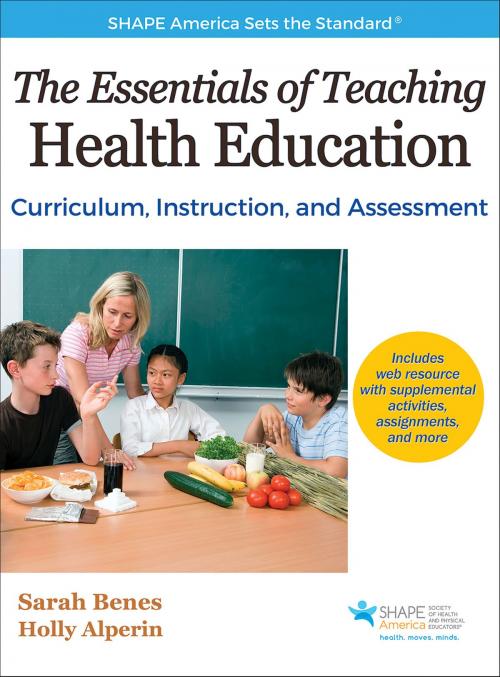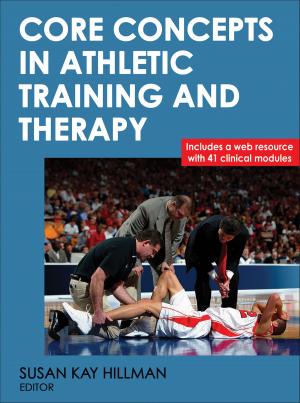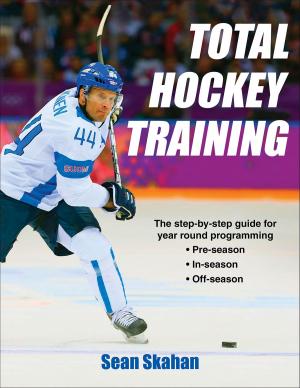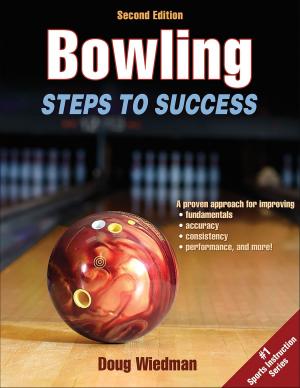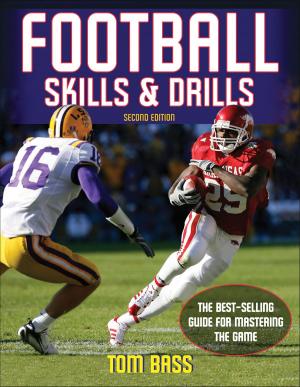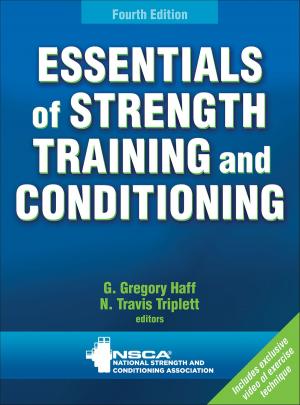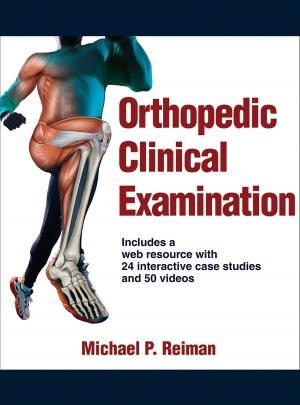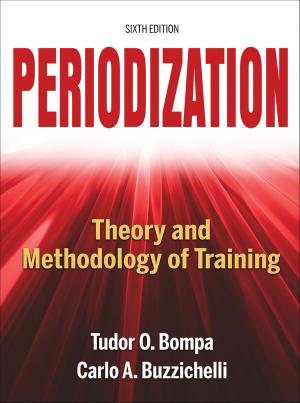The Essentials of Teaching Health Education
Curriculum, Instruction, and Assessment
Nonfiction, Reference & Language, Education & Teaching, Teaching, Teaching Methods, Biography & Memoir| Author: | Sarah Benes, Holly Alperin | ISBN: | 9781492585428 |
| Publisher: | Human Kinetics, Inc. | Publication: | February 18, 2016 |
| Imprint: | Human Kinetics, Inc. | Language: | English |
| Author: | Sarah Benes, Holly Alperin |
| ISBN: | 9781492585428 |
| Publisher: | Human Kinetics, Inc. |
| Publication: | February 18, 2016 |
| Imprint: | Human Kinetics, Inc. |
| Language: | English |
The Essentials of Teaching Health Education presents a skills-based approach to teaching K-12 health education that prepares students for success in the 21st century. This practical text is endorsed by SHAPE America and written by seasoned and highly credentialed authors with experience in both university and K-12 settings. It provides all you need in order to build, teach, and assess a health education program that will help your students become health-literate individuals, develop the 21st-century skills that they need for success in college and in their careers beyond, and maintain or improve health outcomes.
What Sets This Book Apart
This text meets the unique needs of schools, teachers, and students. It emphasizes an individualized approach to enhancing student learning and developing skills based on current research and national health education standards.
The Essentials of Teaching Health Education features the following:
• Practical strategies for curriculum design and program development with a skills-based approach—one that makes it easy to put the contents into action and make a meaningful impact on students
• Real-world examples to help readers understand and apply the content, along with summaries, key points, and review questions that aid in retaining the information
• Vocabulary words and definitions to help students keep up with the ever-changing terminology in health education
Ancillaries to Facilitate Teaching and Enhance Course Content
The text is accompanied by a test bank, a presentation package, a web resource, and an instructor guide, all designed to facilitate your preparation, teaching, and assessment of students’ knowledge. These ancillaries come with tools:
• Teaching slides and tests for each chapter
• Supplemental learning activities and web links
• Chapter review questions and answers, teaching tips, suggested readings, and chapter objectives and summaries
Book Organization
The book is arranged in five parts. Part I delves into the skills-based approach to health education, explaining the importance of the approach and how to understand student motivation. Part II focuses on how to teach skills that are based on the National Health Education Standards: accessing valid and reliable information, products, and services; analyzing influences; interpersonal communication; decision making and goal setting; self-management; and advocacy.
Part III explores how to use data to inform your curriculum planning, outlines the eight steps for curriculum development, and shows you how to design meaningful assessments. In part IV, you learn how to create a positive learning environment, implement a skills-based approach, and meet the unique needs of elementary health education. Finally, in part V, you examine pertinent topics beyond the classroom, including professional development, advocacy, and cross-curricular connections.
A Framework for Successful Acquisition of Skills
The Essentials of Teaching Health Education offers evidence-informed strategies as it guides you through the critical process of supplying students with the tools they need for success in school and in life. The authors use the Partnership for 21st Century Skills framework to set the foundation for teaching the skills students need.
The text is comprehensive and flexible to meet all of your students’ needs. With all the ancillaries and tools it provides, you are set to deliver a complete, well-rounded curriculum that will prepare future teachers for success.
The Essentials of Teaching Health Education presents a skills-based approach to teaching K-12 health education that prepares students for success in the 21st century. This practical text is endorsed by SHAPE America and written by seasoned and highly credentialed authors with experience in both university and K-12 settings. It provides all you need in order to build, teach, and assess a health education program that will help your students become health-literate individuals, develop the 21st-century skills that they need for success in college and in their careers beyond, and maintain or improve health outcomes.
What Sets This Book Apart
This text meets the unique needs of schools, teachers, and students. It emphasizes an individualized approach to enhancing student learning and developing skills based on current research and national health education standards.
The Essentials of Teaching Health Education features the following:
• Practical strategies for curriculum design and program development with a skills-based approach—one that makes it easy to put the contents into action and make a meaningful impact on students
• Real-world examples to help readers understand and apply the content, along with summaries, key points, and review questions that aid in retaining the information
• Vocabulary words and definitions to help students keep up with the ever-changing terminology in health education
Ancillaries to Facilitate Teaching and Enhance Course Content
The text is accompanied by a test bank, a presentation package, a web resource, and an instructor guide, all designed to facilitate your preparation, teaching, and assessment of students’ knowledge. These ancillaries come with tools:
• Teaching slides and tests for each chapter
• Supplemental learning activities and web links
• Chapter review questions and answers, teaching tips, suggested readings, and chapter objectives and summaries
Book Organization
The book is arranged in five parts. Part I delves into the skills-based approach to health education, explaining the importance of the approach and how to understand student motivation. Part II focuses on how to teach skills that are based on the National Health Education Standards: accessing valid and reliable information, products, and services; analyzing influences; interpersonal communication; decision making and goal setting; self-management; and advocacy.
Part III explores how to use data to inform your curriculum planning, outlines the eight steps for curriculum development, and shows you how to design meaningful assessments. In part IV, you learn how to create a positive learning environment, implement a skills-based approach, and meet the unique needs of elementary health education. Finally, in part V, you examine pertinent topics beyond the classroom, including professional development, advocacy, and cross-curricular connections.
A Framework for Successful Acquisition of Skills
The Essentials of Teaching Health Education offers evidence-informed strategies as it guides you through the critical process of supplying students with the tools they need for success in school and in life. The authors use the Partnership for 21st Century Skills framework to set the foundation for teaching the skills students need.
The text is comprehensive and flexible to meet all of your students’ needs. With all the ancillaries and tools it provides, you are set to deliver a complete, well-rounded curriculum that will prepare future teachers for success.
